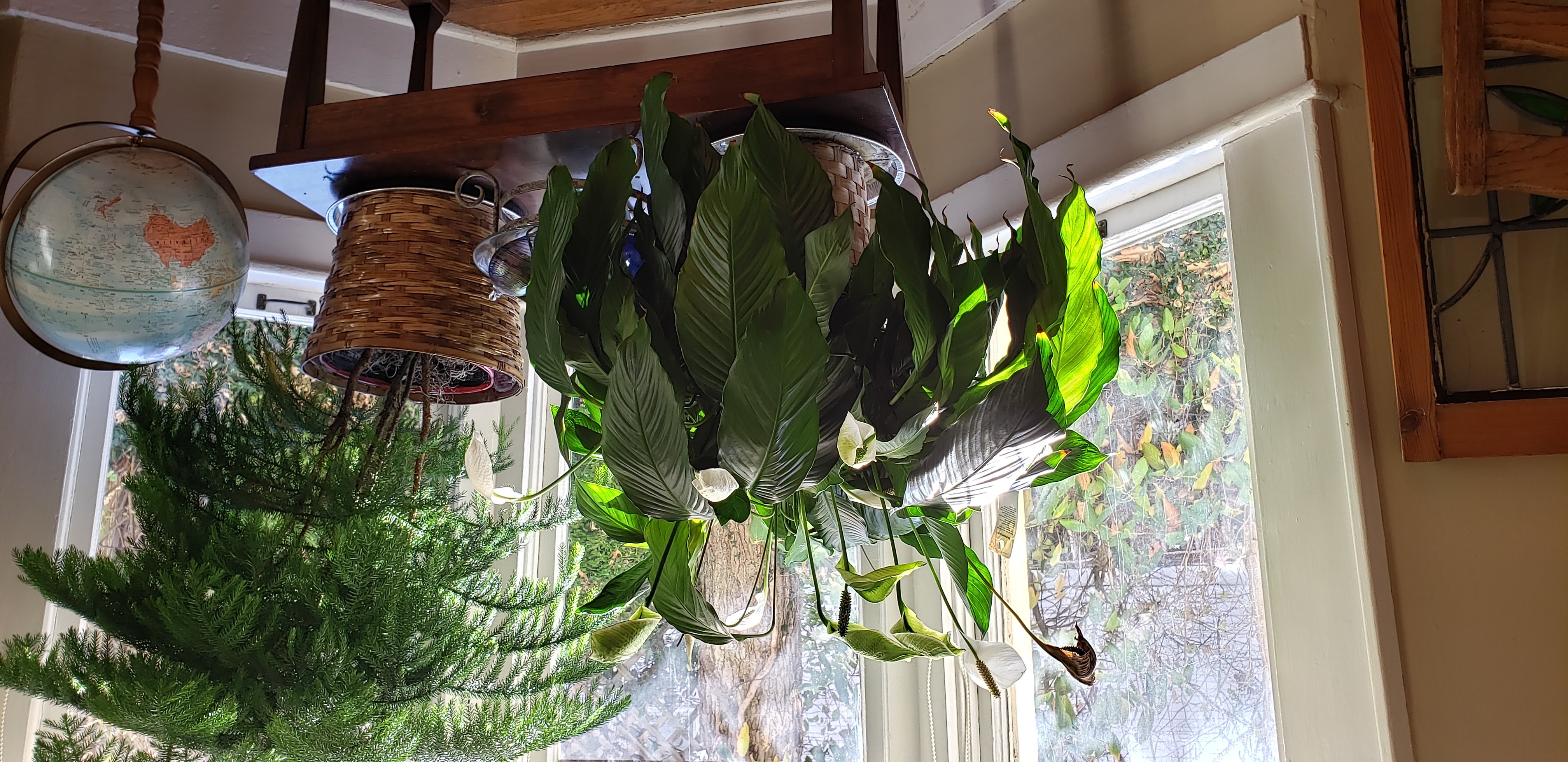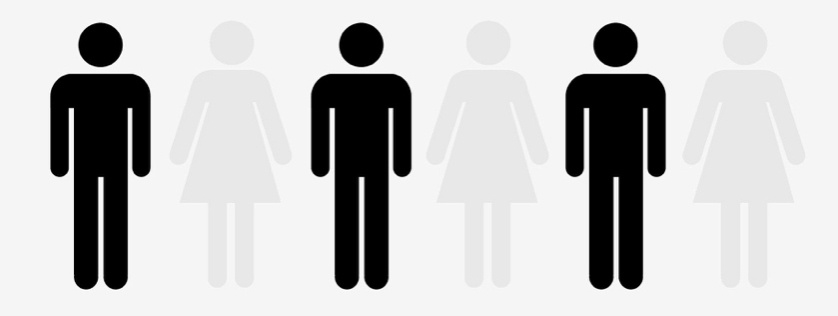Well, it’s been a year. As a deeply dedicated introvert, the part where we couldn’t leave our houses wasn’t much of an issue for me, especially once there was no work pour moi and I had no reason to ever leave my comfy chair. On the other hand, existential threats aren’t great for the old brain box, so I did a lot of rereading comfort books when I was able to settle down to read. I also listened to a lot of podcasts during the (many) times that I couldn’t settle down to read. But I managed to read some new books in 2020, and I’ve picked out my favorites to highlight. I think it’s almost as cool as Obama’s book list, which means that I’m almost as cool as Obama!
In any case, I consumed some media this year. Mostly good. Strangely, even though Capitalism™ doesn’t much care about The Arts, human beings still like it and continue to produce and consume it. Here are some of my favorites from the new (to me) books that I read this year! Order is based simply on the order in which I read things, not at all in order of recommendation. (Some of these I have indeed already written about, in case you start getting that deja vu feeling.)
Nonfiction Books of 2020
Bird By Bird — Anne Lamott
Ostensibly a book on writing, this is also full of life advice that’s good for anyone. Advice on the process and realities of writing are easily applicable to other life aspects; highly recommend. She do be a little religious, so if you’re allergic to that — I still recommend, but I’ll give you this heads up.
Range — David Epstein
This one is a critical examination of the modern love of specialization, and why that is stifling innovation. It also delves into why you shouldn’t feel left behind if other people are ahead of you in your chosen field: different paths give different specialties and collections of knowledge, which may in the end give you the advantage. The core of his argument is BREADTH vs DEPTH. The latter is valuable, but without the former, true progress becomes very difficult. Connections are the true strength that humans have. Engaging anecdotes and strong parallel conclusions weave a compelling narrative.
Invisible Women — Caroline Criado Perez
Data bias in a world designed for men. In 16 chapters, Perez systematically breaks down all aspects of life in which women are at a statistical disadvantage. And, it turns out, that’s nearly all of them. More, this is driven by a lack of data on women, because — as she reiterates time and again — men are the default, and women are the abberation. MUST READ.
Talking to Strangers — Malcolm Gladwell
A deep dive into how we misinterpret interactions with people we don’t know, using some rough real life examples and breaking down what went wrong. It shows how our assumptions are frequently wrong, and how we have to be careful with strangers and assumptions. Also alcohol bad. Audiobook recommended for the musical element (strangely a podcaster makes a good audiobook?).
The Library Book — Susan Orlean
This is a love letter to libraries, written through the lens of a journalist’s search for the truth behind the Great Library Fire of 1986, which destroyed part of the LA Central Library and its collection. She weaves together the current state of libraries and the history of the LA system. In the end, her search for the culprit who was rumored to have set the fire basically takes a back seat to the story of the library itself. If you like libraries at all, this will be a great read for you!
The Education of an Idealist — Samantha Power
This is Power’s autobiography, starting from her childhood in Ireland and then Pittsburgh, her years as a foreign correspondent during the Bosnian War, and through her service in the Obama administration as Ambassador to the UN. It has a very personal feel, and her life makes for an engaging story. At the heart, this tells her story of living life while being adjacent to Big Events. Bittersweet to read about the struggles of the Obama administration trying to manage situations like Ebola and Syria. In closing: US’ biggest asset is its people, and at the end of the day it’s only about family. If you like autobiographies, this one actually feels deeply personal and intimate, and I highly recommend it.
How To Do Nothing — Jenny Odell
In this book, Odell builds the case for “resisting the attention economy” using a combination of her own experiences and expert accounts. Her thesis revolves around getting back in touch with the Earth, and all the good that derives from that — especially the slower pace and deeper connections that are demonstrably healthier for our brains. She examines historical sways towards this, from Epicurus to the commune movement of the 1960s, detailing the successes and failures. (Notably she at one point outlines Peter Thiel’s capitalist dream and proceeds to hilariously nuke it from existence using quotes from Hannah Arendt.) This also outlines the impossibility of removing oneself from society. One has to participate, by the fact that we are all human and must at some point interact with other humans; therefore, what’s left is simply to decide how one will participate.
More details (not neatly presented) because I have so many notes from this book:
Capitalist society is built as person–against–person struggle, which leaves little room to struggle against the greater systemic problems — such as attention. Corporate retreat-style unplugging fails to address the root problems, instead reinforcing the idea that wE mUsT bE pRoDuCtiVe. Those who can escape the established system need to make space for those further down the line (create MARGINS). Art helps us to question assumptions. Not knowing everything about yourself is reason to keep living. This goes against advertising to be yourself, which is assumed therein to be some pre-defined static object.
Humans are — and cannot be separate from — the natural world. And why do we privilege sentience? Isn’t that just a way of further privileging humanity as the best? Diversity is strength, as is a sense of community. (She makes the beautiful comparison of homogenous neighborhood = single crop farm). The proposed next era is the Cthulucene: an earth full of refugees without refuge. All fates are linked, so we must find balance rather than control, and examine destruction vs “construction”.
Back to the attention economy: we need context to our communications, which social media does not provide. This leads to lack of attention and knee-jerk reactions that can be easily exploited. Social media also collapses content into a “lowest common denominator,” for all audiences at once. That means there is no nuance between social groups. The attention economy is designed to trap you in fear.
The Deficit Myth — Stephanie Kelton
My Controversial Pick of the Year! This is an argument for Modern Monetary Theory and a human-centered economy. That means a fiscal policy based on managing inflation rather than debt, a federal jobs guarantee based on the care economy, and a strong social safety net, all of which strengthens the base of the economy, empowering people. Federal government, as the currency issuer, cannot by definition run out of money; taxes are inflation management and an incentive to use that currency, which lets people feel invested in their own community; national debt is owed either to the citizens — which means the people have that money — or to other countries, meaning they as a trade parter are invested in our economy.
In my understanding, established economists aren’t overly impressed by MMT. As I am not at all an economist, I cannot speak to that. Even so, I recommend this for the way she clearly articulates the problems facing our society — notably climate change — and how there are ways we can address them while centering humans in the equation. The current system doesn’t have to be a foregone conclusion. This is especially relevant as we see how much it doesn’t currently work for vast swathes of the population.
Caste — Isabel Wilkerson
WOOF. A deep, deep dive into the caste systems of US, Nazi Germany, and India, showing the parallels and the absurdities. Also how the caste system acts as a poison to all who ingest it. There is a dominant group status threat is facing our society hard right now; as well as the euphoria of hate, and the health affects for everyone involved. This is not an easy book to read, but it’s an important one. So please do.
Fiction Books of 2020
The Clockmaker’s Daughter — Kate Morton
Beautifully written and engaging, with a rich cast of characters woven together through time. Reveals were well paced to keep interest, although the end felt slightly rushed (I could have read it too fast though).
Lady Trent Memoires — Marie Brennan
A Natural History of Dragons, The Tropic of Serpents, Voyage of the Basilisk, In the Labyrinth of Drakes, Within the Sanctuary of Wings
This series has a vivid setting that relies on info of our world, but spun into a fictional setting. Its memoire style gives nice freedom for extra observations, while still fully maintaining immersion in the story. Even helped to spice the mystery of dragons: “assumes” the reader knows the relevant information, which keeps suspense and interest. Each book introduces new regions, new people, new culture to explore, and plenty of exciting adventure!
Eleanor Oliphant Is Completely Fine — Gail Honeyman
Intriguing story, told in a way that keeps your interest. Good look at what makes society and humanity. Ended very sweet.
Tyll — Daniel Kehlmann
Set during the Thirty Years’ War in Germany (HRE). Non-chronological telling of the journey of Tyll Ulenspiegel, the famous jester. Full of vivid characters and potent settings that really give a feel for the time. The characters in their own minds tended to feel the same, but their world views were at least distinct. This also may have been an artifact of the translation. The ordering of the narrative keeps the pace going, while individual scenes tended to be more like paintings evoking emotions: full of events, sure, but with mood foremost. I absolutely loved this book, although it’s pretty dark.
Murder on Cold Street — Sherry Thomas
Fifth installment of Lady Sherlock series, going strong still. I recommend the whole series — starting from the beginning, of course.
Anyway Happy New Year, let’s see how 2021 goes. I’ll see you in there.




Great list! Glad you enjoyed Tyll, and have some new books for my own list.